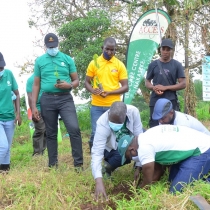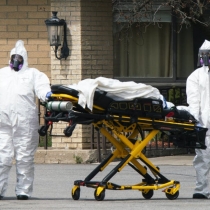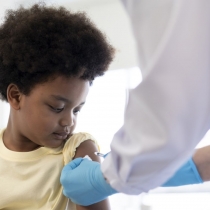Religious Leaders - Taking on the Challenge of HIV/AIDS in Uganda

By Desire K Amanya
“He who commits adultery lacks sense; he who does it destroys himself.”
Twenty-two years ago, on the 13th Day of April, at the Kampala Sheraton Hotel, Philly Bongole Lutaaya did a most unusual thing - publicly declaring that he was afflicted with HIV/AIDS.
“Fellow comrades of Uganda,” he said, “it is with utmost regret that today I inform you that the sickness bothering me has been diagnosed as AIDS. Surely, this will no doubt be a shock, but it is true; I am one of the victims of this dreaded disease, AIDS.”
Bongoley Lutaaya also declared that he had overcome the distress of his ailment and had resolved to use his remaining days on earth to create awareness about AIDS in a bid to save those who were still safe from the scourge.
This was at a time when stigma against HIV/ AIDS was at its highest, when AIDS patients were deeply ostracized by their families, their friends and society in general.
The life-prolonging antiretroviral drugs (ARVs) were not yet available, Lutaaya’s declaration therefore, was one of courage and patriotism. It is in this same spirit that religious leaders should and must be champions against stigmatisation of those that continue to suffer the effects of this HIV/AIDS pandemic.
There is no doubt that they prevail with relatively the highest number of followers which places them in a better position to not only educate but also warn the multitude of believers against all acts that may lead to infections of AIDS.
Religious leaders can also foster the process of reconciliation that is urgently needed to bring families and communities divided by HIV/AIDS back together.
Rev Gideon Byamugisha, himself positively living with HIV, said it best: “I am here to let you know that God likes healthy people. Being HIV positive is not a crime, neither is it a sin. Don’t drop ARVs (Anti Retroviral Treatment) thinking you will be saved, God is always at our rescue when we do the right things.”
Overcoming HIV/AIDS requires courage, commitment and leadership at all levels, especially among religious leaders who can use the trust and authority they have in their communities to change the course of this pandemic.
Back in the 1980s more than 30% of Ugandans had contracted the HIV virus.
Now the national prevalence rate is around 6.4%, an achievement attributed largely to the country's rapid acknowledgment of the crisis it faced, the roll out of national prevention and treatment messages and its embrace of open discourse around causes and solutions to the virus.
The churches have the power to align communities to keep away from acts that would cause AIDS by promoting responsible living.
To respond to the AIDS challenge, the churches must be transformed in the face of the HIV/AIDS crisis, in order that they may become a force for transformation bringing healing, hope, and accompaniment to all affected by HIV/AIDS.”
Use religious and spiritual teachings in a positive way: Say special prayers, use sermons and guided meditations, and quote from sacred or philosophical texts to support people and give them strength.
Propose positive solutions: Provide facts and spiritual direction and suggest what religious, material and societal support different people might need in order to prevent the spread of HIV, to live positively and to support others.
In some cases, a few religious leaders have oftentimes contributed to the spread of the disease and stigma denying that it exists, trying to hide it, or judging those infected. When people feel threatened or ashamed by HIV/AIDS, efforts of prevention become more difficult.
In 2002, support services were provided to 38% of all orphaned children in the country, more than doubling the number of children reached the previous year. Awareness-raising activities included a children’s choir contest, involving more than 10,000children, some of whom were orphans.
The choirs used music to share information about HIV/AIDS and the problem of child abuse. It’s therefore profoundly clear that religious leaders Shape social values by:
(i) Promoting responsible behavior that respects dignity of all persons and defends the sanctity of life;
(ii) Increase public knowledge and influence opinion,
(iii) Support enlightened attitudes, opinions, policies and laws
(iv) Redirect charitable resources for spiritual and social care and raise new funds for prevention and for care and support
(v) Promote action from the grass roots up to the national level. As Uganda prepares for the 13th Annual Joint AIDS review e-conference, and as government continues its efforts to #EndAIDS2030Ug, Ugandans especially the clergy are called upon to always incorporate messaging in all their sermons on HIV/AIDS.
“Because the achievements in reducing HIV prevalence have not been shared equally between districts, it is important that we act with urgency to achieve our goal of Ending AIDS in Uganda by 2030.”
Religious leaders can and should be able to reverse this unfortunate trend. For not to take on this cause is to “commit adultery” - it is to destroy the society of both the faithful and faithless.
Links
- 422 views










































